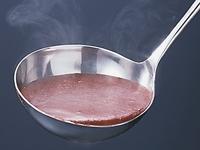How did you smell chocolate? The brain knows!

American researchers have shown that the smell of chocolate is extracted by mouth or nose, activating different areas of the brain. That is, a single aromatic molecule generates different responses, taken in one way or another.
It is frequent that the odors introduced by the mouth in the olfactory system are mixed with taste. Thus, it is usual to hear that in the taste of a wine highlights the fruity touch. However, salinity, sweetness, bitterness and bitterness are only distinguished by taste, while this fruitful touch is perceived by smell.
Researchers have conducted an experiment to analyze the neurological aspect of smell. The volunteers were introduced a few small tubes through the nose, they ended up in the nostril itself and the others reached the end of the passage of the nose, the throat. By means of an MRI, the smell is inserted through tubes and the response of the brain is analyzed.
Four smells have been used: chocolate (to see the response produced by food), lavender (as pleasant as chocolate, as it is not to eat), and butanol and farnesol (two aromatic chemicals, one dissolves in water and the other in oil to see if it has influence).
Researchers have found that chocolate activates different areas of the brain depending on the smell input, while lavender does not act. There are also no differences between the two chemicals. Therefore, it seems that the case of food is special. However, they have to investigate with more food, as for the moment they have only tasted it with chocolate.





